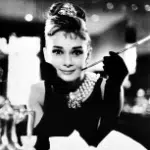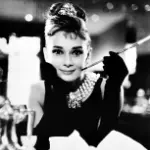Setting history aside hampers our comprehension of Winston Churchill as a politician. However, it's important to note that "history" encompasses more than just the bleakest moments during times of adversity. "Darkest Hour" intricately portrays pivotal moments spanning the tumultuous period from the late 19th century to the post-World War II era in Western history. This elevates the film beyond the typical formulaic tributes, offering a deeper exploration of significant historical events and their impact on the broader scope of history.
The First World War can be seen as a rupture in world history, and the trends that dominated the 20th century, such as the Bolshevik Revolution, decolonization, and the rise of American imperialism, all followed along this fault line. However, the era of European liberal imperialism had already shown signs of crisis by the end of the 19th century. Regardless of the geopolitical factors that eventually led to the Great War, the internal developments within the British Empire signaled certain future changes.

Following a series of electoral reforms, the House of Lords, representing the hereditary and landed aristocracy, significantly diminished its pwer to the House of Commons. The political center in Britain shifted entirely to the mass-based House of Commons. While the Conservative Party (Tory) and aristocratic political families still controlled political leadership, the rise of the Liberal Party and the Labour Party foreshadowed the future of popular politics in Britain. The brutality of the war led to the extinction of the finest young minds of the British aristocracy, accelerating rather than altering the natural course of history. In the era of modern mass democracy, it has become imperative for the state to effectively tap into the power of its people. This involves actively listening to their voices, addressing their needs, and undertaking measures to mobilize and organize the vast number of ordinary men and women within society.
The film mentions Churchill's departure from the Conservative Party to join the Liberal Party, and his Liberal period (1904-1924) coincided with the party's last glorious era. Prime Minister Lloyd George, who led Britain to victory in the war, was the last political giant of the Liberal Party, and during his tenure, Britain witnessed a wave of social welfare legislation. Churchill's domestic policies were in line with the Liberal Party. In 1908, he introduced the earliest minimum wage standards in the UK, and in 1924, he advocated for a high inheritance tax, policies that differed from the traditional "conservatism" of the 19th century. So, at the beginning of the film, Chamberlain and Halifax only mock Churchill as the only acceptable Prime Minister for a grand coalition government.

In the final scenes, Churchill rides the subway to connect with the "people" and then passionately addresses the House of Commons, defeating the plot of appeasement. Some criticize this plot setting as cliché, but viewed in a historical context, it perfectly reflects the changing spirit of the times between the two World Wars. From Nazi Germany to democratic America, the development of radio and media allowed leaders to influence the "people" directly, drawing strength from the "voice of the people." Hitler's radio broadcasts and Roosevelt's fireside chats exemplify the era of mass politics, using the latest political means to widen the boundaries of political possibilities—no different from Trump bypassing the establishment and posting on Twitter.
Churchill, facing resistance within the Conservative establishment, turned to seek support from the "people." While some might simplistically label this as "populism," it overlooks deeper shifts in historical terrain and the astuteness of great figures like Churchill in grasping the political pulse. Though he received a Victorian education and had a typical aristocratic background, he was a part of the chorus burying the Victorian era. Churchill still possessed qualities of the old age but had to adapt to the logic of the new era to lead the country forward. While he continuously failed in "small matters" (though Gallipoli was by no means an ordinary affair), he exhibited unmatched sensitivity and determination in major affairs.
In the portrayal of Hitler as the ultimate antagonist, the central dramatic conflict in the film focuses on Churchill and the British people versus Chamberlain and Halifax. This dramatic narrative aims to underscore Churchill's resilience and distinct qualities, leading to an exaggerated depiction of Chamberlain's significance in history. During a pivotal moment in the film, Chamberlain and Halifax enumerate Churchill's "crimes," one of which includes the Norwegian expedition. This expedition refers to a conflict where the Chamberlain wartime cabinet dispatched Allied forces to oppose the Nazi invasion in Norway.
Compared to Churchill, Chamberlain adhered more to the political norms and thought patterns of traditional Europe and Britain. According to the controversial claims of A.J.P. Taylor, the Munich Agreement was quite ordinary in the political discourse of the 19th century. Which diplomatic achievement did not involve private agreements between powers? What negotiations did not include behind-the-scenes bargaining? What peace was not based on the shrewd calculations, rational self-interest, and cautious restraint of political elites?
The aftermath of the Great War marked the demise of old diplomatic norms from the previous century. Principles such as national self-determination and transparent diplomacy rendered the notion of "deciding for other countries" unacceptable. Crucially, Hitler operated in a manner that diverged from the typical political calculations of 19th-century politicians. His driving force wasn't guided by rational national interests but rather by fanatical zeal and intense hatred.
Initially, Chamberlain's approach was rooted in the hope that after the German-Austrian merger and the annexation of Sudetenland, Hitler would acquiesce. However, contrary to expectations, Hitler exploited the situation and expanded his aggression to encompass the entirety of Czechoslovakia. Feeling deceived and incensed by Hitler's actions, Chamberlain declared that Britain and France would arm themselves to defend Poland and subsequently initiated preparations for war. This marked a critical turning point leading to the escalation of tensions towards an impending conflict.
In the critical moment when the Low Countries were falling and Halifax advocated for negotiations, Chamberlain stood on the side of resolute resistance, helping Churchill stabilize the front line. In the film, Chamberlain and Halifax emphasize "logic" and "reason," oblivious to the fact that this reasoning relies on a structure that no longer exists. Chamberlain's world was one of gentlemen's agreements and a balance of power, while Churchill understood a new world that he couldn't see. This world wasn't a haven for gentlemen like Cavour or Bismarck; it was a paradise for ideologues and idealists. You either become a champion of democracy or become a sacrifice for Hitler's madness.

Churchill saw through not only Hitler but also Stalin, Roosevelt, and the rules of the new world. So, he could set aside his deep-seated hatred for the Bolsheviks, cooperate fully with Stalin during the Second World War, and relinquish the dignity of the British Empire, handing the key to ruling the world to the guardians of the New World. As he mentioned in his speech:
"We shall fight on the beaches, we shall fight on the landing grounds, we shall fight in the fields and in the streets, we shall fight in the hills; we shall never surrender. And if, which I do not for a moment believe, this island or a large part of it were subjugated and starving, then our Empire beyond the seas, armed and guarded by the British Fleet, would carry on the struggle, until, in God’s good time, the New World, with all its power and might, steps forth to the rescue and the liberation of the old."
































Share your thoughts!
Be the first to start the conversation.